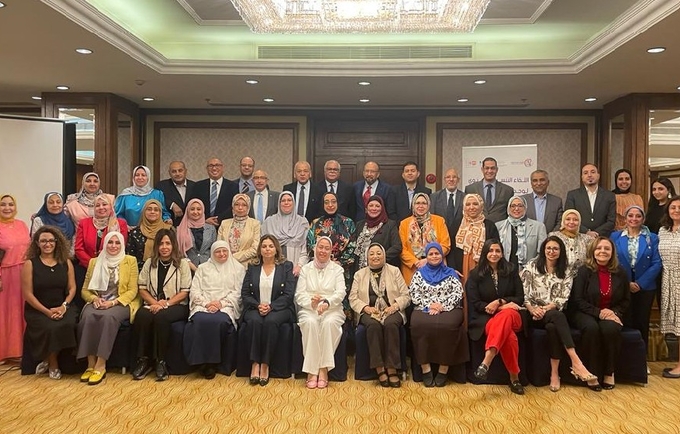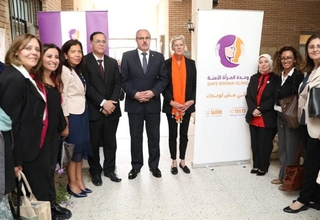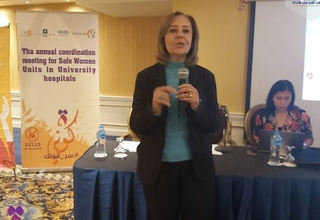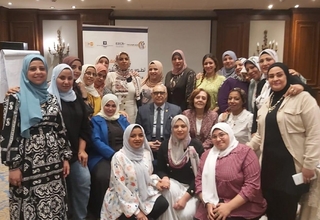UNFPA and the National Council for Women (NCW) organized the 3rd annual meeting for directors and representatives of Safe Women Clinics in University Hospitals last week.
This meeting brought together representatives of 12 University Hospitals across Cairo, Giza, Mansoura, Assiut, Banha, Minya and Beni Suef to share their results and engage in consultation around priorities for medical response to gender-based violence (GBV) against women and girls.
It is part of UNFPA's large-scale program to strengthen quality of medical services for victims of gender-based violence, with the support of KOICA, the Swiss Development Cooperation, the Royal Norwegian Embassy, the Italian Agency for Development Cooperation.
The Safe Women Clinics are medical response clinics offering comprehensive services for women subjected to violence. Since late 2020, 10 clinics were inaugurated at Al-Azhar, Qasr al-Ainy, Mansoura, Ain Shams, Suez Canal, Assiut, Benha, Beni Suef, Minya and 6th of October university hospitals.
This year, the meeting was an opportunity for over 25 senior heads of University Departments, professors and medical experts to shed light on most critical forms of GBV against women and girls, the good practices achieved by Safe Women Clinics and priorities for the next year.
Dr. Dina Shoukry, Professor of Forensic Medicine and Toxicology at Cairo University and Head of the Forensic Medicine Department, Armed Forces School of Medicine, delivered a presentation on a unified curriculum proposal for medical students on female genital mutilation (FGM), a new priority area led by UNFPA to ensure that all forms of GBV and harmful practices are addressed and receiving adequate response.
Another priority issue discussed this year is the institutionalization of Safe Women Clinics under university hospitals. This step would pave the way to more sustainability and engagement within hospitals departments to ensure that GBV against women and girls is addressed.
A presentation, analysis of results and discussion around the results achieved by Safe Women Clinics was facilitated by Dr. Amal Philip, the medical services coordinator at the National Council for Women and Mona E-Ghazali, the National Coordinator at the National Anti-Violence Coordination Unit. Over 500 cases were documented this year, receiving medical, psychological and referral services.
UNFPA and NCW continue to strengthen a referral process allowing victims to receive needed legal assistance through the Women's Complaints Office, as well as investing in capacitating over 100 medical service providers on GBV medical response services.
UNFPA's Gender Specialist, Sally Zohney, shared an overview on the upcoming branding and outreach campaign led by UNFPA to support the capacities of the clinics' to reach a wider audience. The branding campaign will feature an online component using digital media activities, launching an infographic animated video online and in waiting areas within the hospitals, as well as a large-scale offline component that includes signage, posters, information leaflet and announcement material within the hospitals. The campaign will take place under the 16 Days of Activism activities supported by UNFPA this year.




